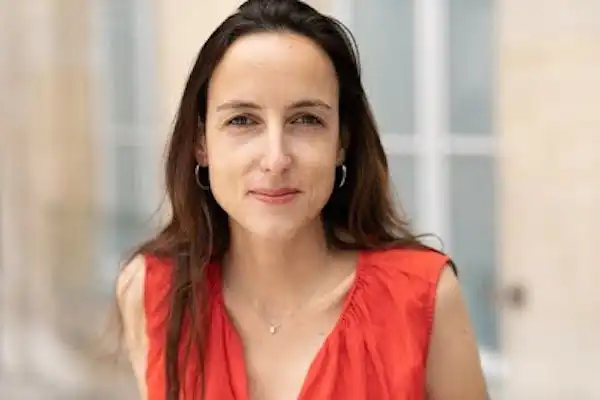Home>Julia Cagé, co-laureate of the 2025 EEA-Yrjö-Jahnsson Prize
01.04.2025
Julia Cagé, co-laureate of the 2025 EEA-Yrjö-Jahnsson Prize
The Yrjö Jahnsson Foundation and the European Economic Association (EEA) announced on March 31st the laureates of the 2025 edition of the Yrjö-Jahnsson Prize : Julia Cagé, Professor at Sciences Po Department of Economics, and David Yanagizawa-Drott (University of Zurich) were distinguished for their “work on political economy and the media, based on deep historical research in France, the USA, and Africa”.
The EEA-Yrjö-Jahnsson Prize, a “best European economist award”
Created in 1993, the Yrjö-Jahnsson Prize is awarded every two years by the Yrjö-Jahnsson Foundation and the European Economic Association (EEA) to a European economist under the age of 45 “who has made a contribution in theoretical and applied research of outstanding importance to the study of economics in Europe”.
Touted as the “best European economist award”, the EEA-Yrjö-Jahnsson Prize and has an impressive line of laureates. As its newest laureate, Julia Cagé will join ranks with Nobel laureate Jean Tirole, Philippe Aghion, Thomas Piketty, and Hélène Rey, to name but a few French prize winners. She also becomes the first economist from the Department to win the prestigious prize and Sciences Po only the third French university, alongside the Toulouse School of Economics (TSE) and the Paris School of Economics (PSE), to count a Yrjö-Jahnsson Laureate among its faculty members.
Media and social media play a critical role in shaping political beliefs and actions, a key takeaway of co-laureates' work
In its motivation, the 2025 Award’s Selection Committee - chaired by Kalina Manova (Yrjö-Jahnsson and Philip Leverhulme Laureate), and with Nobel laureate Esther Duflo, Leibniz and Gossen Laureate Nicola Fuchs-Schündeln, and Marco Ottaviani - highlighted the importance and the timeliness of their findings on the critical role of media and social media in shaping political beliefs and influencing political action “as well as the dangers posed by controlled media.” The Selection Committee concluded “Their findings underscore the importance of media independence for a healthy democracy".
Published in the leading international peer-reviewed journals and laureate of the 2023 edition of Le Monde-Cercle des économistes’ “Best Young French Economist Award”, Julia Cagé’s work focuses on media economics, political participation and political attitudes.
In 2021 she was awarded an ERC Starting Grant for her 5-year project Campaign Finance, Information and Influence: A ComprehensIve Approach Using Individual-Level Data and Computer Science Tools (PARTICIPATE) which studies, notably, blindspots in the economic literature on the funding of political parties and the representativity of candidates for their electoral campaigns.
Her subsequent research projects, which received substantial grants in 2022 and 2023 from Project Liberty (ex-McCourt Institute), explore issues related to information in the digital age (the spread of disinformation on social media and online news) but also look at resolving them (how to slow down disinformation, how to ensure access to quality information).
Proposing concrete solutions to issues analysed through the crucible of economics
Julia Cagé is also well-known to the general public for her books which propose concrete, radical solutions after meticulous scrutiny of their topic, through the crucible of economics – this a hallmark of Julia’s work.
She has authored three books on the media, one of which - Saving the Media. Capitalism, Crowdfunding and Democracy (Paris, Le Seuil, 2015) - was awarded the Special Jury Prize for Best Book on Media of the 2016 edition of the “Prix des Assises du Journalisme”. Her critically acclaimed work « The Price of Democracy » (at Fayard in 2018, English edition at Harvard University Press, 2020) was awarded the Prix Pétrarque de l’essai by Le Monde and France Culture in 2019.
In 2023, she published at Le Seuil her latest book with co-author Thomas Piketty, A History of Political Conflict. Elections and Social Inequalities in France, 1789-2022 (an English edition at Harvard University Press is forthcoming in 2025). The book is based on an unprecedented digitization and analysis of electoral and socio-economic data spanning more than two centuries and shows how inequality has shaped the formation of political coalitions, with stark consequences for economic and political development. The book has a companion: a website that is an invaluable resource for future research as it makes available all their data, collected from France's 36,000 municipalities.
Congratulations to Julia Cagé!
Julia Cagé is Professor of Economics at Sciences Po’s Department of Economics and a Research Fellow at the Centre for Economic Policy Research (CEPR), where she also leads the Research and Policy Network on “Media Plurality”. She has published articles in journals such as the American Economic Review, the Review of Economic Studies, the American Economic Journal: Applied Economics, the American Economic Journal: Microeconomics, the Journal of International Economics, and the Journal of Public Economics.
Learn more:
